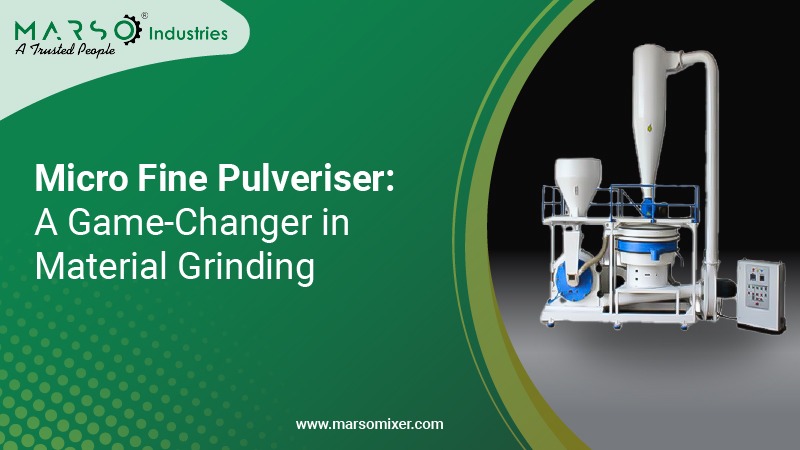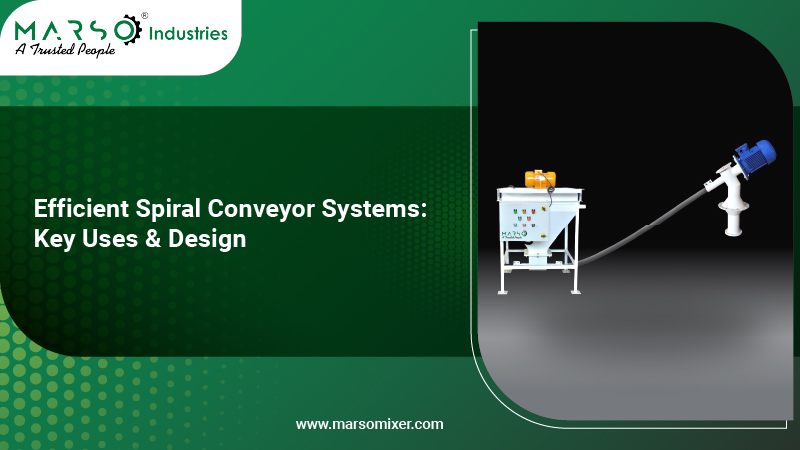
Hopper Loader Vacuum Conveying System for Powder Transfer
April 25, 2025
Marso Industries’ Micro Fine Pulveriser: A Game-Changer in Material Grinding
May 30, 2025Cell culture is a cornerstone of modern biological and pharmaceutical research. Whether it’s growing stem cells, producing recombinant proteins, or testing drug compounds, maintaining a sterile, contamination-free environment is critical. This is where vacuum aspiration systems come into play. Specifically, the Marso Industries Vacuum Aspiration System is gaining attention for its efficiency, safety, and design that supports advanced cell culture techniques.
In this blog post, we’ll explore what a vacuum aspiration system is, how it enhances lab workflows, and why the Marso Industries is becoming a game-changer for researchers and lab technicians.
What is a Vacuum Aspiration System in Cell Culture?
In any cell culture lab, media exchange and waste removal are routine but crucial tasks. A vacuum aspiration system is designed to efficiently and safely remove liquid waste like spent media, supernatants, or reagents. This is especially important when working in sterile conditions to prevent cross-contamination or environmental exposure to biohazardous materials.
Traditional aspiration methods often involve manual pipetting into waste containers, which is not only time-consuming but also increases the risk of contamination. A dedicated vacuum aspiration system automates this process, improving both speed and sterility.
Key Components of a Vacuum Aspiration System
- Vacuum Pump: Provides the suction force needed to draw liquid waste.
- Waste Bottle/Container: Collects the aspirated fluids. Often made from autoclavable materials for sterilization.
- Filter System: Prevents aerosol contamination and protects the pump from biohazards.
- Aspiration Handset or Pipette: Allows precision control during aspiration, often ergonomically designed.
- Tubing and Connectors: Ensures sealed, contamination-free fluid transport.
These components work in synergy to create a seamless and efficient fluid disposal system that meets biosafety standards.
Challenges in Conventional Cell Culture Waste Management
Managing waste in a cell culture lab isn’t just about removing old media; it’s about ensuring sterility, efficiency, and safety:
- Contamination Risk: Manual pipetting increases chances of accidental contamination.
- Biohazard Exposure: Handled improperly, bio-waste can pose risks to researchers and the environment.
- Time Wastage: Repetitive manual tasks reduce the time available for critical scientific work.
- Inefficiency in Large-Scale Labs: In high-throughput labs, traditional methods can’t keep up with the volume.
That’s why modern labs are turning to automated solutions like vacuum aspiration systems.
Enter the Marso Industries: Redefining Aspiration Efficiency
The Marso Industries Vacuum Aspiration System is not your average lab tool—it’s a purpose-built system designed to meet the modern demands of bioscience labs.
Here’s what sets it apart:
- Innovative Design
The Marso Industries is ergonomically engineered to fit easily into biosafety cabinets without taking up too much space. Its compact yet powerful design ensures maximum efficiency without cluttering the workspace.
- Hands-Free Operation
With a built-in foot pedal or touchless sensor, the system offers hands-free activation, allowing researchers to maintain sterile technique while operating the device.
- Adjustable Suction Power
Not all media or solutions behave the same. The Marso Industries allows users to adjust suction levels, making it ideal for delicate procedures where cells could otherwise be disrupted or damaged.
- Autoclavable Components
Every component that contacts liquid waste is made from autoclavable, chemical-resistant materials, ensuring both durability and compliance with lab sterilization protocols.
- HEPA Filtration System
A high-efficiency HEPA or hydrophobic filter captures aerosols and prevents contamination, which is critical for labs dealing with pathogens or sensitive materials.
How the Marso Industries Improves Lab Workflow
Using the Marso Industries can dramatically streamline the cell culture process:
- Faster Turnaround Time: Speeds up media changes and waste removal.
- Improved Safety: Reduces exposure to biohazards and aerosols.
- Consistency: Delivers uniform suction power for consistent results.
- Reduced Manual Labor: Frees up researchers for higher-value tasks.
In high-throughput environments like pharmaceutical R&D or academic labs, these benefits translate into significant productivity gains.
Sustainability and Waste Reduction
Another underappreciated benefit of using a vacuum aspiration system like the Marso Industries is reduced waste. Manual pipetting often involves the use of disposable pipettes and tips, generating plastic waste. By automating the aspiration process, the Marso Industries cuts down on consumables, aligning with eco-friendly lab practices.
Applications Across Diverse Lab Settings
The versatility of the Marso Industries makes it suitable for various types of labs:
- Stem Cell Research: Where sterility and gentleness are critical.
- Biopharmaceutical Labs: For large-scale media exchanges.
- Clinical Labs: Handling biohazardous samples with high safety standards.
- Academic Institutions: Teaching labs benefit from the system’s ease of use and safety.
Conclusion
In the world of cell culture, small inefficiencies can lead to big problems—whether it’s contamination, wasted time, or compromised experiments. The Marso Industries Vacuum Aspiration System stands out by solving these challenges with a smart, reliable, and researcher-friendly design.
For labs looking to elevate their waste management game, the Marso Industries isn’t just an upgrade—it’s a transformation. From biosafety to ergonomics, from speed to precision, this system delivers on every front.
Ready to clean up your cell culture workflow? The Marso Industries might just be your lab’s new best friend.




